Focus
Your Present Location: HOME> Focus-
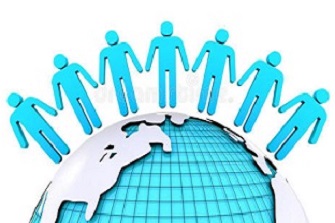
Ding Gang: China, ASEAN see interconnectivity strengthen
The pandemic has had a strong impact on the Southeast Asian economy and around the world. The main export destination for China and Southeast Asian products is the US and European markets. As China has been gradually resuming economic activities, its consumption needs will help the recovery of the Southeast Asia industrial sector. For instance, China can purchase Southeast Asian products as supplements to imports from other parts of the world.
2020-03-19 -
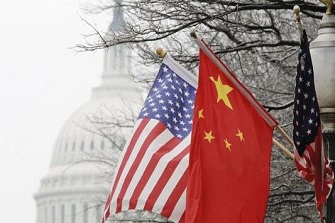
Zhao Minghao: The spread of COVID-19 calls for China-U.S. cooperation
With the COVID-19 spreading fast in the U.S., the Trump administration has declared a national emergency. Analysts in China have been closely following its economic and political impact on the U.S. and also the virus has turned into an important factor shaping the U.S.-China relationship in the near future.
2020-03-18 -
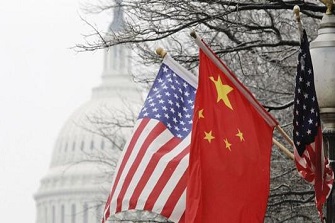
Zhao Minghao: The spread of COVID-19 calls for China-U.S. cooperation
With the COVID-19 spreading fast in the U.S., the Trump administration has declared a national emergency. Analysts in China have been closely following its economic and political impact on the U.S. and also the virus has turned into an important factor shaping the U.S.-China relationship in the near future.
2020-03-18 -

Daryl Guppy: Great Panic of 2020 is not the financial crisis of 2008
The Great Panic of 2020 is not the same as the Global Financial Crisis of 2008 (GFC) although some of the Great Panic collateral impacts will be similar. Governments are responding to the Great Panic as if it were a repeat of the GFC and these responses are most likely to be ineffective and may be more economically damaging than expected by supporting perverse outcomes.
2020-03-16 -
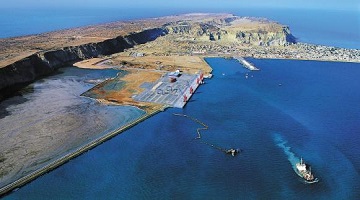
Zhou Rong : Analysis of Pakistan's preferential policy towards SEZs and export-led industry
Pakistan’s future is and will be dependent on export-led growth.The development of 10 special economic zones (SEZs) is vital to improve the capacity of the Pakistan export. SEZs are open for business people from all countries, as incentives under SEZs are the same for every investor. The investments in various sectors had started pouring in and the pace would pick up in the near future if Pakistani security situation would remain stable. The second phase of CPEC is about industrial and agricultural cooperation, so speed up SEZS is a must.
2020-03-16 -
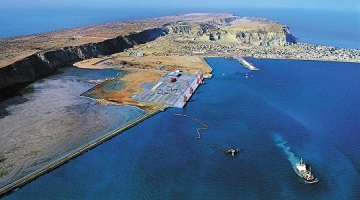
Zhou Rong : Analysis of Pakistan's preferential policy towards SEZs and export-led industry
Pakistan’s future is and will be dependent on export-led growth.The development of 10 special economic zones (SEZs) is vital to improve the capacity of the Pakistan export. SEZs are open for business people from all countries, as incentives under SEZs are the same for every investor. The investments in various sectors had started pouring in and the pace would pick up in the near future if Pakistani security situation would remain stable. The second phase of CPEC is about industrial and agricultural cooperation, so speed up SEZS is a must.
2020-03-16 -
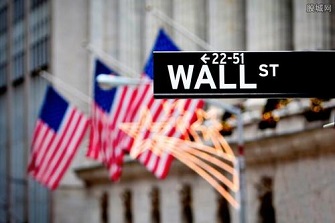
William Jones: Great Panic of 2020 is not the financial crisis of 2008
However things develop, it is already clear that there can be no simple return to the status quo ante. Too much has already been revealed about the fragile nature of our health system and the fragile nature of our economic system based on the vagaries of that "bubble market" known as Wall Street. There will have to be a new order of things in the United States, one geared to the people's livelihood rather than the Dow Jones average. Coming out of such a major crisis, the American people will accept no less.
2020-03-16 -

Wang Wen: The US owes an apology to the world
The virus is spreading worldwide. The number of new international confirmed cases per day has surpassed China at least 10 times. At this stage, the world needs unity. The US, as the world's most powerful country, should have called on other nations to help combat what has become a common enemy, just as they did during World War II. Unfortunately, they have made no such efforts. After observing the words and deeds of the US administration and other elites, I realized their accusations against China were aimed to divert attention, conceal inaction, and dodge long-standing flaws in US foreign policy.
2020-03-10 -
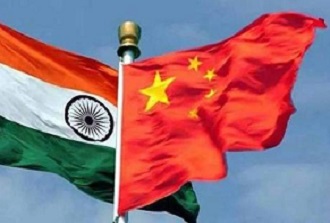
Liu Zongyi: India’s attempt to provoke China over Da Cui Yun incident must be countered
Last year, the Indian Navy blatantly expelled a Chinese scientific research vessel on the high seas near the Andaman Islands, and this year India created an excuse to seize the Da Cui Yun vessel. The Da Cui Yun incident has revealed the arrogance of the Indian government and its governing Hindu nationalists. To consolidate its supremacy in South Asia and the Indian Ocean, India not only has resorted to every means to discredit, isolate and crack down on Pakistan, but also has been trying to act as a "police officer" in the Indian Ocean.
2020-03-09 -
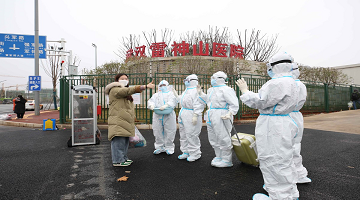
Isamoldien Khadir A. Elmansour: China's fight against COVID-19 a story of pride
The novel coronavirus pneumonia outbreak in China has attracted unprecedented global attention because of the mounting worries regarding the unknown global challenges for humankind. It was very not very clear at the very beginning of the outbreak whether this unknown virus would be controllable due to the lack of information about the nature of the virus.
2020-03-09 -
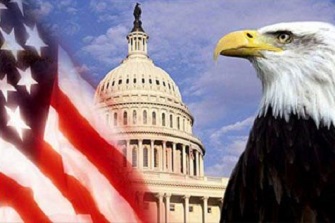
Ding Gang: Are voters ready for Sanders’ socialism?
To observe a development model, one should look at not only its vision for the future, but also its inclusiveness and flexibility. The sustainability of a development model often lies in its openness and inclusiveness. Successful reform depends not only on local culture and traditions, but also on whether it can adapt to changes amid global competition. This may help us understand why the Trump administration is considering using a national disaster program to pay for treatment of uninsured patients infected with the coronavirus.
2020-03-05 -

William Jones: Will US system withstand test of COVID-19?
The coronavirus outbreak was a test of the effectiveness of the Chinese Government, so also will the coronavirus be a test of the US system of governance. And problems have already emerged. The initial batch of 200 virus test kits that the CDC had sent to labs were defective. The CDC had also restricted the target groups for testing to those who had recently traveled to China or their contacts. As a result, some people in California and Washington state who had some symptoms, didn't meet the CDC criteria for testing and weren't tested, and one of them has died.
2020-03-04 -
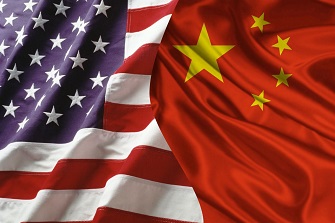
US Cap on Chinese State Media Employees a ‘Return to McCarthyism’
The US Department of State announced Monday that Beijing’s state media entities operating in the US will be subjected to a 100-employee cap, restricting the organizations’ ability to produce content in the US and, as one expert tells Sputnik, the right to free speech.John Ross, a senior fellow at Chongyang Institute, Renmin University of China, and an award-winning resident columnist with several Chinese media organizations, joined Radio Sputnik’s Loud and Clear to discuss the Trump administration’s recent decision and give his opinion on why it came about.
2020-03-04 -

China Planning National Biosecurity Law, Special Medics Force
Stung by the severity of the novel coronavirus pneumonia (COVID-19) outbreak, the Chinese government plans to bring in a biosecurity law and establish a legal system to secure national biosecurity by setting up a dedicated force of medical personnel trained in handling epidemics.
2020-03-04 -

Liu Zongyi: India’s discrimination against Muslims ignored by the West
The US and the West have turned a blind eye to India's discriminatory policies and legislation. The brutal conflict that took place during Trump's trip to India should have attracted attention from the US and the West, but they stayed silent only because India is labeled a democracy. Asked by reporters, Trump said the protests were India's internal issue.
2020-03-03 -
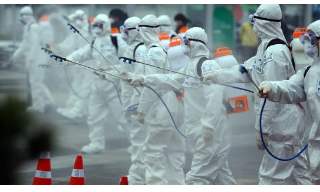
Wang Wen: Will COVID-19 Launch a Coming Global Crisis?
Since the second half of February, the novel coronavirus has been contained in China for the time being; however, it has spread across the world. The world is on high alert; the US stock market has plummeted and global markets are in a state of panic. The epidemic has spiralled out of control in Japan and South Korea, and lockdown measures have been imposed in European cities, increasing the likelihood of a global geopolitical crisis.
2020-03-03 -

Mostafa Mohammadi: Biosafety challenge calls for greater cooperation
The Covid-19 epidemic is not the first biological threat to humans and will not be the last. There have been several epidemics since the beginning of 21st century, although the West has mostly has managed to avoid the worst, but it does not mean that an epidemic will never seriously trouble those parts of the world. Biological threats are every country's problem, not only those that are most badly challenged by the emergence of a serious public health threat.
2020-03-02 -

Daryl Guppy: COVID-19 is crunch time for your business relationship with China
China's response to the COVID-19 is different to the response to the SARS outbreak. It is an uninvited test of political maturity. And yet, it has been greeted with border closures and racism despite the WHO saying these measures are both unnecessary and counterproductive. The China response stands in stark contrast to H1N1 swine flu which originated in the borderlands of the United States and Mexico, infecting more than 1,600,000 people in 214 countries with a 17 percent mortality rate leading to more than 284,000 deaths.
2020-03-02 -
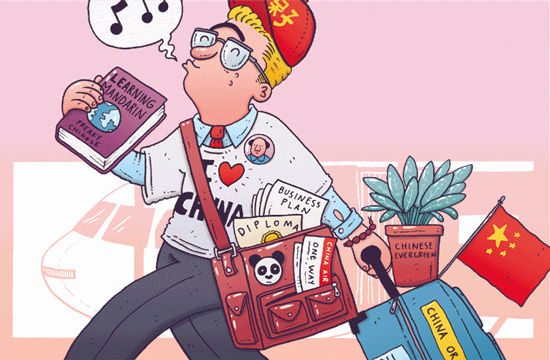
Ding Gang: Foreigners who built their China Dream are always welcome back
Since reform and opening-up began in 1978, China's interaction with the outside world has accelerated and China's development has become increasingly fascinating and has attracted many foreigners to study, work and live in China. Many of them have achieved their own dreams with the help of China's fast development, and in return many have contributed to the country's development. Their relations with Chinese people are now like those of close neighbors. Many of these foreigners regard China as their home or at least their second hometown.
2020-02-27 -
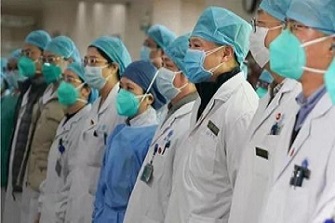
Essam Sharaf: Time for solidarity and international cooperation
The COVID-19 outbreak has become a common concern for the international community. China has taken appropriate measures in time, conduct and function against the epidemic, and the Chinese authorities have been praised by scientists worldwide, including the WHO, for their responsible, effective and transparent response.
2020-02-27
























































































 京公网安备 11010802037854号
京公网安备 11010802037854号





